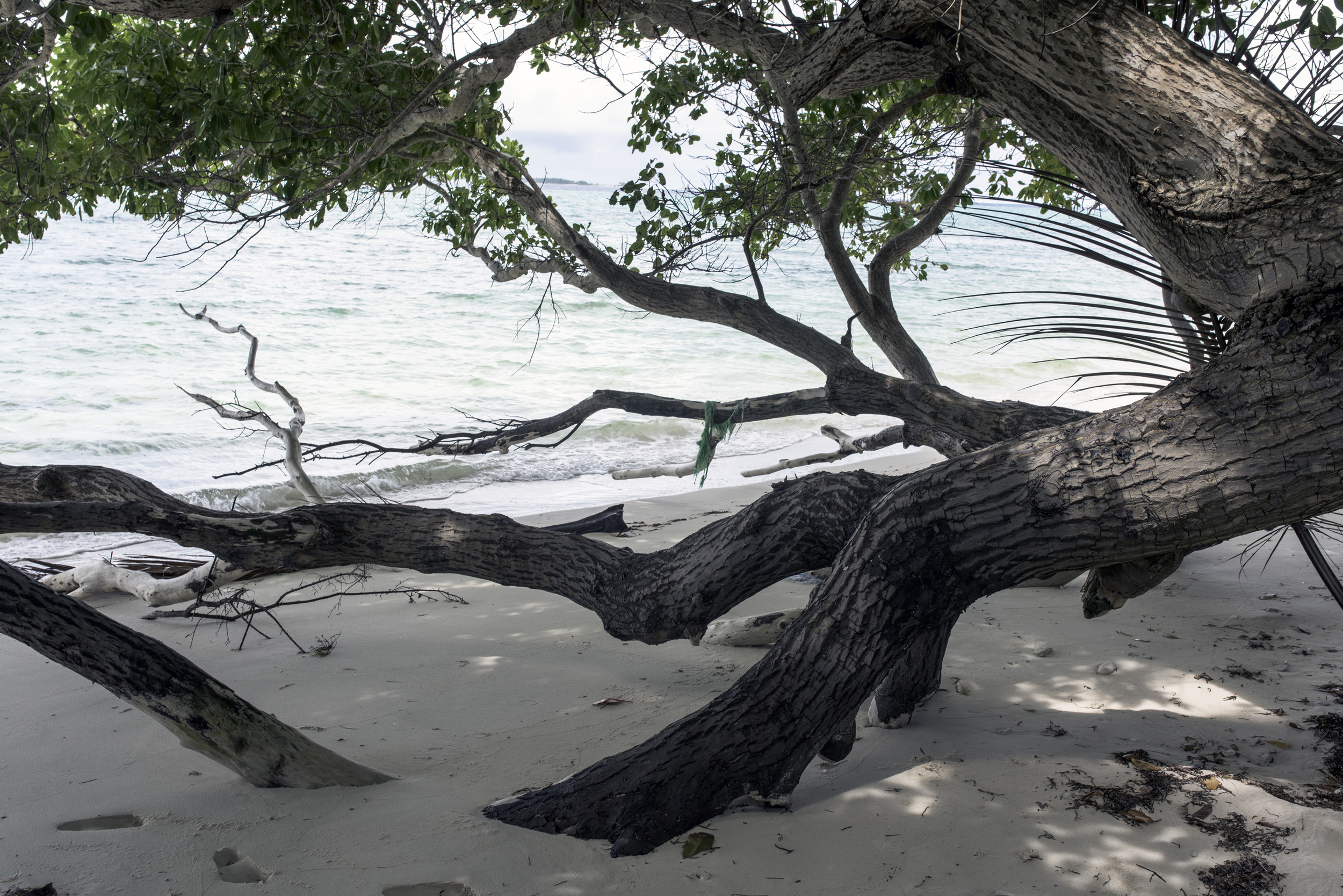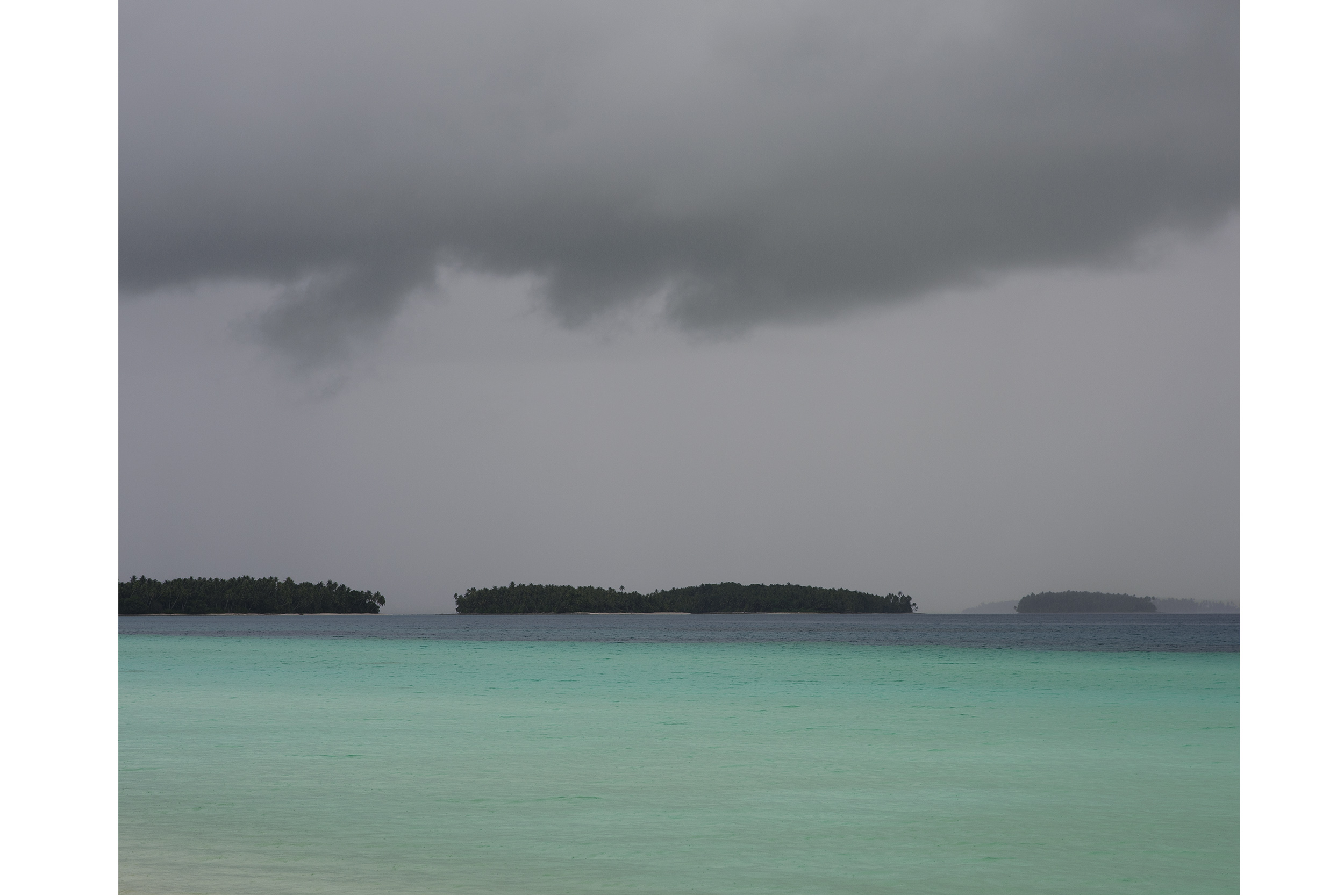Islands
Atoll,Republic of the Marshall Islands
Despite Marshallese ingenuity and resilience, it’s entirely plausible the Marshall Islands will vanish under the sea, its people joining a Pacific island diaspora dispersed across the U.S., Australia, and elsewhere. “It’s hard to confront the fear that your island could be gone permanently and that your people would be wandering,” remarked Kathy Jetnil-Kijiner, a young Marshallese poet, in a 2015 interview with Vogue Magazine.
READ MORE/LESS
The Marshall Islands are an independent republic of 29 low-lying atolls and five isolated islands situated in the middle of the Pacific, with a resident population of 50,000 plus. Notorious for 67 nuclear test blasts at Bikini and Enewetok Atolls that caused widespread collateral human radiation damage, the Marshall Islands today are widely regarded as a “canary in the mine” for climate change.
With land elevation seldom higher than three meters and seas rising at the fastest rate in the last 28 centuries, this island nation is extremely vulnerable.
Atolls are made of coral reefs that accrued from the exoskeletons of billions of tiny polyp animals sprouting alongside the rims of sunken volcanic islands. The coral took thousands of years to build up, eventually attaining only several meters of height above sea level as plants colonized the sand. Due to their low elevation, atoll islets today are particularly vulnerable to inundation during heavy storms and seasonal king tides. Meanwhile, intruding salt water ravages agriculture and poisons drinking wells.
It is difficult to convey the indelible beauty of these atolls. I should know. Years ago I lived on Arno Atoll for two years as a Peace Corps Volunteer. I can't forget the Marshallese people with whom I worked, as well as the immense, serene lagoons; tiny islets heaving with coconut and pandanus trees; and vast skyscapes packed with jagged cloud formations and daily rainstorms.
The Marshallese have occupied these islands for 2,000 years and developed a rich culture that emphasizes kindness, or “joij” to make such tiny living spaces livable socially. Brilliant at adapting to a minimalist environment, the Marshallese even invented their own ocean navigation system based on waves and unseen currents, permitting sailing from atoll to atoll over a range of 1,300 kilometers to support families and food distribution. Extraordinary.




















